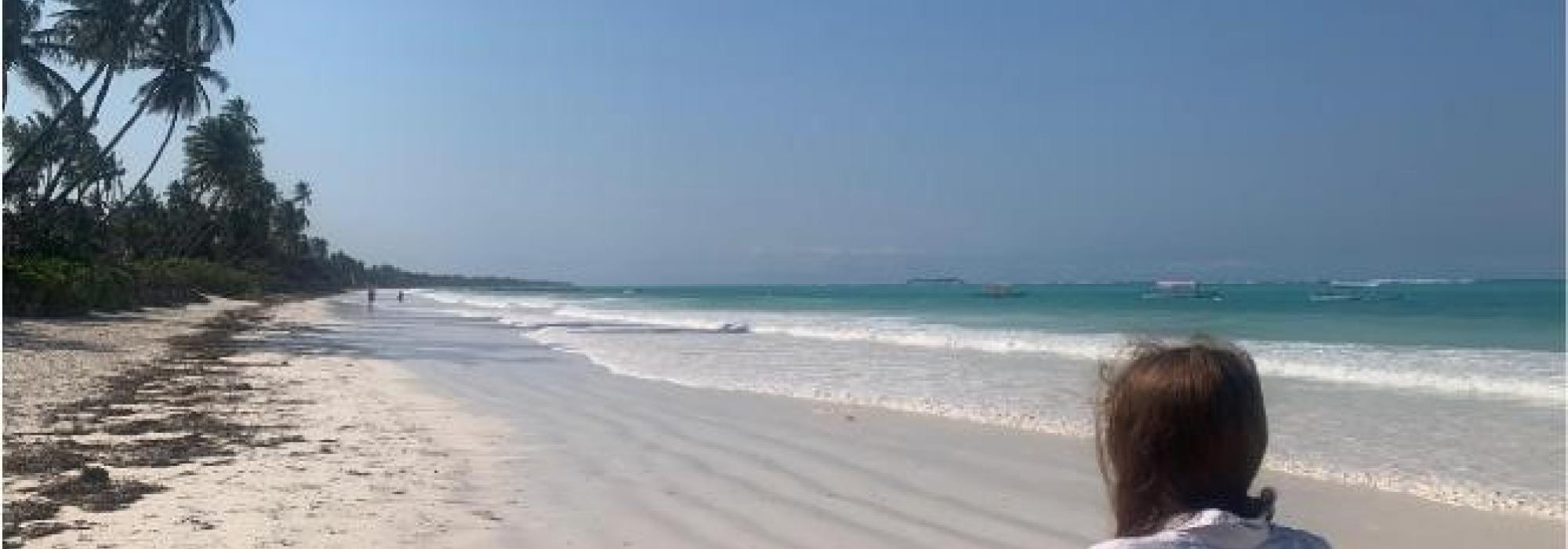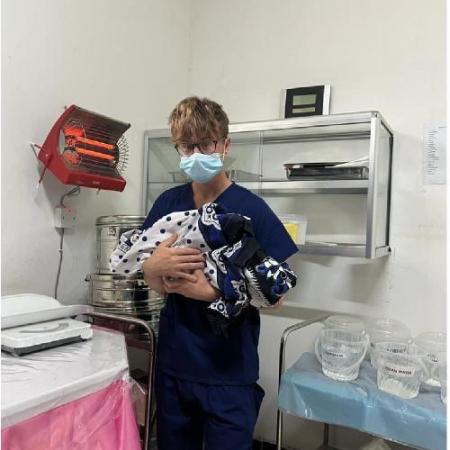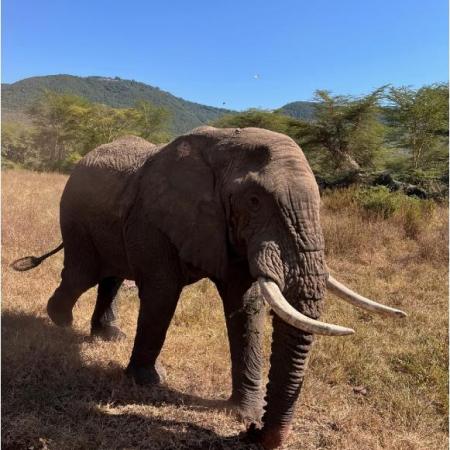
Report: Volunteering at Meru District Hospital, Arusha, Tanzania
In July 2023 – the summer between the pre-clinical and clinical stages of their medical degree – Rachel and Henry spent a fortnight volunteering at a local district hospital in northern Tanzania. During this trip, they sought to:
-
gain insight into the provision of medicine in Tanzania, where medical resources are limited and the disease burden is markedly different from that of the UK;
-
gain experience volunteering in such settings, with a view to working for humanitarian organisations, such as Médecins Sans Frontières, as part of a future career;
-
provide practical support to healthcare staff, where possible.

Maternity:
Predominantly a maternity hospital, Meru District Hospital frequently sees upwards of ten women in active labour at any given time, often requiring that two women share one hospital bed. Rachel is particularly interested in obstetrics and gynaecology, and as such spent a lot of time in the labour ward and family planning clinic. Being lucky enough to observe several deliveries and one caesarian section in the hospital’s only operating theatre, she was shocked that obstetric pain relief was not made a priority during resource allocation; not only did labouring women have absolutely no access to either gas and air or epidural anaesthesia, but they heard of a recent emergency caesarian section where the mother had been operated on without any anaesthesia at all. Overall, this demonstrated the impossible challenge of providing effective medical care in the context of a resource-stricken healthcare system.
Henry and Rachel shared several enjoyable conversations with the young mother of a very premature baby, born at 27 weeks gestation and cared for under a heat lamp in the hospital’s neonatal unit. It was therefore a happy coincidence that she named her son Henry during their time at the hospital!
Infectious disease:
Given that Henry focused on the immune system during his FHS studies, he was interested to encounter diverse infectious diseases, including HIV/AIDS, tuberculosis, and malaria. Indeed, in Tanzanian adults, the prevalence of HIV/AIDS is estimated to be 4.5%. Thus, he was saddened, but not surprised, to see many advanced cases of HIV/AIDS (including, in one case, a patient on the paediatric ward). These were often related to poor adherence to antiretroviral therapies, which, in addition to the barrier posed by limited resources, highlighted the importance of empowering/educating patients such that they adopt an active role in their treatment. This point was reinforced by one particularly interesting patient who was suffering from leprosy – a disease that has effectively been eradicated in the UK since the late 18th century.
Cultural differences in medicine
Both Henry and Rachel were struck by significant cultural differences that exist between medical practices in Tanzania and the UK. It seemed that much of this was related to the need to balance the rituals/practices of local tribes, such as the Masai, with values and ideals of Western medicine. For example, they were surprised to observe as the medical staff and patient paused to pray before beginning an emergency caesarean section in the operating theatre.

Sightseeing:
During their first weekend, they were fortunate enough to go on a safari with other volunteers from the same organisation. The highlight of this trip was spending a day at the Ngorongoro crater – a large volcanic caldera next to the Serengeti National Park – where they saw lions, zebra, elephants, giraffes, wildebeest, and even an endangered black rhino. They also enjoyed lunch next to a bloat of hippos happily bathing in the sun.
Finally, after saying goodbye to their fellow volunteers (and baby Henry!), they paid a short visit to Zanzibar, where the idyllic beaches and warm Indian Ocean provided some much appreciated rest.
Rachel and Henry are both extremely grateful to Lord Gerry Grimstone and Merton College for this invaluable opportunity. For both of them, this trip has provided great insight into the nature of medical volunteering with humanitarian organisations – an avenue that both are looking to pursue (now more than ever!) in the future, including, if possible, during their medical electives in 6th year.